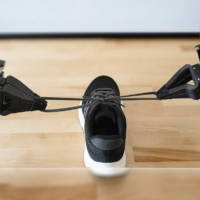
What seemed like a simple wallpaper update app turned out to be a blatant violator of user privacy. Developer Rafael Rivera revealed that Microsoft Bing Wallpaper silently adds a geolocation API during installation, enabling user tracking without any explicit permission—a serious breach of trust.
Moreover, shortly after installation, the app forcibly sets Microsoft Edge as the default browser. If Edge isn’t installed, Bing Wallpaper launches the user’s default browser with a prompt to switch to Bing as the search engine. Such aggressive tactics are more likely to repel users than convince them to adopt the product.

Finally, Rivera discovered that the app can uninstall itself at Microsoft’s discretion, raising further questions about Bing Wallpaper’s true purpose. Unsurprisingly, this sparked a wave of criticism, with some users even suggesting a class-action lawsuit against the company.
Considering Windows already has the capability to update wallpapers daily, it’s doubtful that many will choose to install Bing Wallpaper. Nonetheless, this serves as a reminder to stay vigilant about cybersecurity and privacy.










